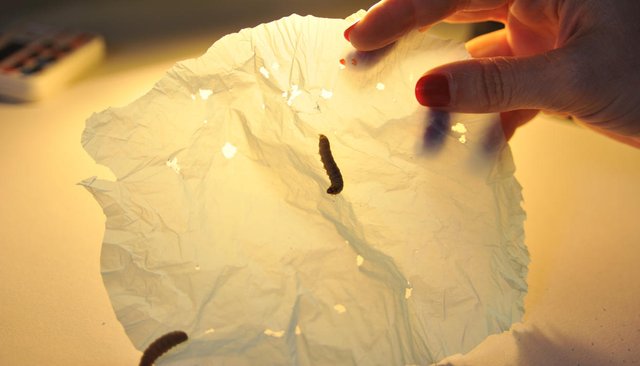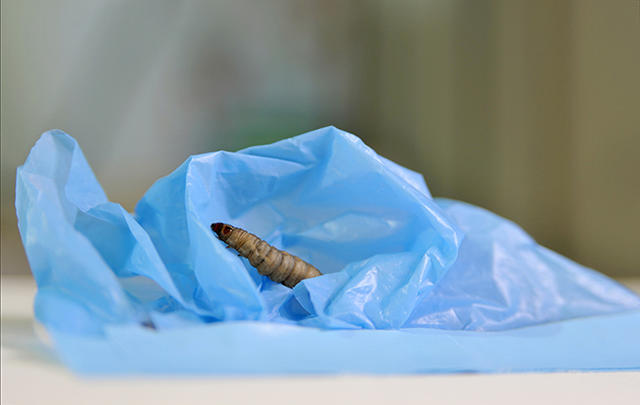
Processing of polyethylene is a big problem for mankind: it is made much, it very badly decays, and it harms the environment. The Atlantic tells about recent opening: the caterpillar of a wax moth can digest polyethylene. However, so far it is unclear, how exactly she does it and whether it will be possible to use this knowledge.
In the scientific magazine Current Biology there was article that caterpillars of a wax moth, most likely, can digest polyethylene. And not just to chew and bring out of an organism in the natural way, and to process into other substances. And before similar organisms were known to scientists, but all of them process polyethylene very slowly. And one hundred caterpillars of a wax moth can cope with 92 milligrams of polyethylene in 12 hours.
For the first time their such ability was found by Federica Bertocchini who works at the Spanish Institute of biomedicine and biotechnology of Cantabria (Spain). She studies early development of embryos of animals, and in free time breeds bees. Once she cleaned a beehive and has put caterpillars which eat wax and cause many problems to beekeepers, in a plastic bag. After a while Bertocchini has noticed that in a package holes have appeared. The researcher has become interested in this phenomenon and has put a small experiment: I have pounded caterpillars and I have smeared this "paste" on polyethylene. A part of material has disappeared, and it meant that the caterpillar not just eats polyethylene, and destroys him by means of some special substances. Therefore Federica Bertocchini has addressed colleagues in the Cambridge university (Great Britain) — to Paolo Bombelli and Christopher Hau. The publication in the Current Biology magazine became result also.

In 2014 in the world have produced about 124,4 million tons of polyethylene. It very badly decays therefore scientists try to think up how to change a situation. Perhaps, studying of caterpillars of a wax moth will change something. However those experts who didn't take part in this research, consider that to speak about optimistical forecasts prematurely. Besides, it is still not established, how exactly caterpillars of a wax moth process polyethylene. Perhaps, matter in special enzyme or bacterium. If this is so, theoretically these substances or microorganisms it is possible to use for polyethylene processing commercially. Scientists are going to deal with this issue in the nearest future.
"Possibly, we will be able to find the necessary molecule and to make it commercially instead of pushing millions of caterpillars in plastic bags".
THE ATLANTIC
Excellent finding sir @ shamanred very good news, the truth that totally ignored the existence of this variety of caterpillar able to produce this material, had knowledge the silk, but this is amazing.
Thank you very much for sharing this today
Downvoting a post can decrease pending rewards and make it less visible. Common reasons:
Submit
thanks
Downvoting a post can decrease pending rewards and make it less visible. Common reasons:
Submit